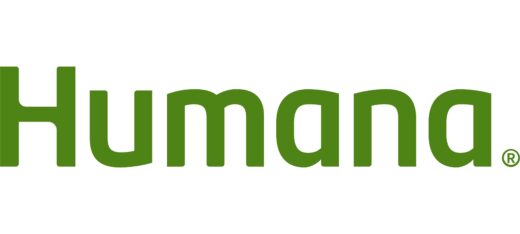
Written by Ronni Sandroff
HealthCare Writer
We aim to help you make informed healthcare decisions. While this post may contain links to lead generation forms, this won’t influence our writing. We follow strict editorial standards to give you the most accurate and unbiased information.
Key Takeaways
-
Medicare Part B premiums rise to $202.90, with a higher $283 deductible and increased IRMAA charges for higher-income enrollees.
-
Medicare Part A inpatient deductible increases to $1,736, with higher skilled nursing and hospital coinsurance rates.
-
Most beneficiaries with 40+ work quarters continue to pay no Part A premium.
-
Medicare Part D IRMAA ranges from $14.50 to $91.00 for higher-income individuals in 2026.
A Look at Medicare Part A, Part B, and Part D Costs
On November 14, 2025, the Centers for Medicare & Medicaid Services (CMS) announced the 2026 premiums, deductibles, and coinsurance for Medicare Part A, Part B, and Part D.
These tables separate the costs by Medicare plans Part A, Part B, and Part D—showing the key premiums, deductibles, coinsurance, and income-related adjustments for 2026.
Compare options HERE & start your health plan journey.
Medicare Part B Costs 2026
| Cost Item | Amount (2026) |
|---|---|
| Standard Monthly Premium | $202.90 |
| Annual Deductible | $283.00 |
| Immunosuppressive Drug Coverage Premium | $121.60 |
Part B Income-Related Monthly Adjustment Amounts (IRMAA) (2026)
| Individual Income | Joint Income | Total Monthly Premium |
|---|---|---|
| ≤ $109,000 | ≤ $218,000 | $202.90 |
| $109,001–$137,000 | $218,001–$274,000 | $284.10 |
| $137,001–$171,000 | $274,001–$342,000 | $405.80 |
| $171,001–$205,000 | $342,001–$410,000 | $527.50 |
| $205,001–$499,999 | $410,001–$749,999 | $649.20 |
| ≥ $500,000 | ≥ $750,000 | $689.90 |
IRMAA for Married Filing Separately (2026)
| Individual Income | Total Monthly Premium |
|---|---|
| ≤ $109,000 | $202.90 |
| $109,001–$409,999 | $649.20 |
| ≥ $410,000 | $689.90 |
Compare options HERE & start your health plan journey.
Medicare Part A Costs
| Cost Item | Amount (2026) |
|---|---|
| Inpatient Hospital Deductible | $1,736 |
| Coinsurance (Days 61–90) | $434 per day |
| Coinsurance (Lifetime Reserve Days) | $868 per day |
| Skilled Nursing Facility Coinsurance (Days 21–100) | $217 per day |
| Premium (30–39 quarters) | $311 per month |
| Premium (<30 quarters) | $565 per month |
| Premium (40+ quarters) | $0 |
Medicare Part D Income-Related Monthly Adjustment Amounts (IRMAA) (2026)
| Individual Income | Joint Income | IRMAA Amount |
|---|---|---|
| ≤ $109,000 | ≤ $218,000 | $0.00 |
| $109,001–$137,000 | $218,001–$274,000 | $14.50 |
| $137,001–$171,000 | $274,001–$342,000 | $37.50 |
| $171,001–$205,000 | $342,001–$410,000 | $60.40 |
| $205,001–$499,999 | $410,001–$749,999 | $83.30 |
| ≥ $500,000 | ≥ $750,000 | $91.00 |
IRMAA for Married Filing Separately (2026)
| Individual Income | IRMAA Amount |
|---|---|
| ≤ $109,000 | $0.00 |
| $109,001–$409,999 | $83.30 |
| ≥ $410,000 | $91.00 |
Medicare Part B (2026)
The standard monthly premium for Medicare Part B increases to $202.90 in 2026, up from $185.00 in 2025. The annual deductible rises to $283.00. Beneficiaries needing coverage for post-transplant immunosuppressive drugs will pay $121.60 per month.
Higher-income beneficiaries pay IRMAA amounts ranging from $81.20 to $487.00 extra per month, depending on filing status and income tier.
Medicare Part A (2026)
Medicare Part A covers inpatient hospital care, skilled nursing facility care, hospice, and certain home health services.
Most people with 40+ quarters of work history still pay no premium.
Key 2026 updates:
-
Inpatient hospital deductible: $1,736
-
Daily coinsurance (61–90 days): $434
-
Skilled nursing coinsurance: $217/day for days 21–100
-
Monthly premiums for those without enough work history rise to $311 (30–39 quarters) or $565 (<30 quarters)
Medicare Part D (2026)
Base premiums vary by plan, but higher-income enrollees pay an additional Part D IRMAA amount ranging from $14.50 to $91.00 per month.
For more details, visit the Federal Register.
Shop for a Medicare plan with additional benefits!
Thank you for your feedback!








